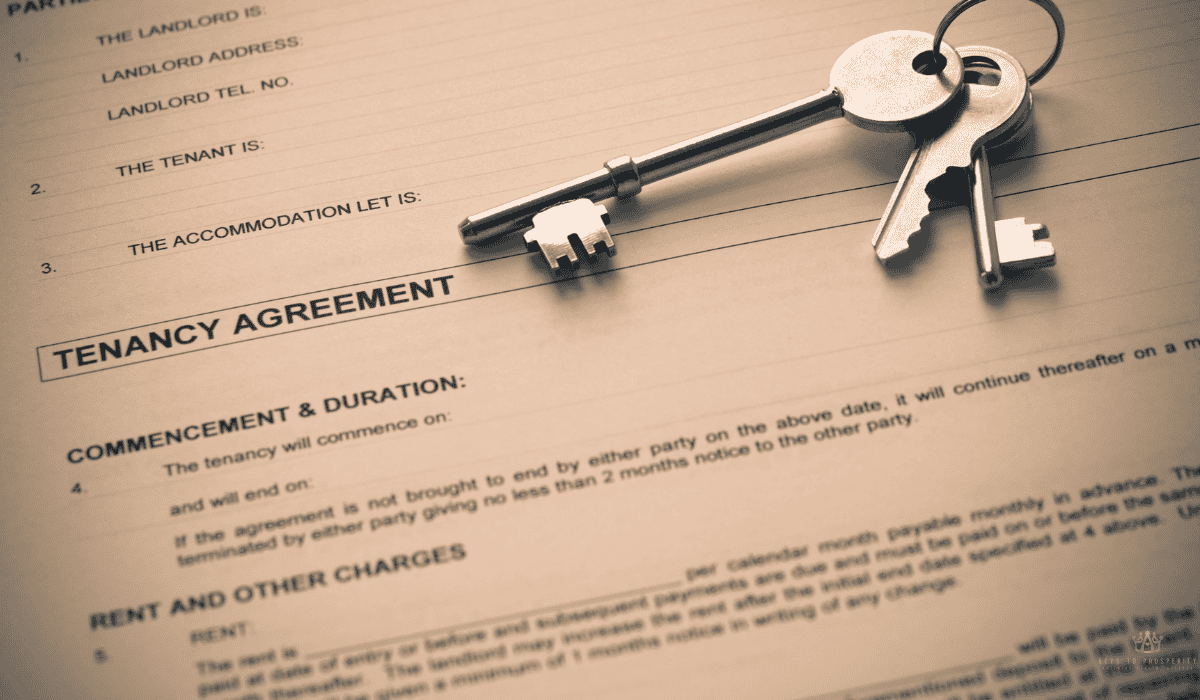
Did you know that more people are turning to real estate as an investment? And for good reason! As of early 2025, the housing market is showing steady growth, with existing-home sales reaching an annualized rate of 4.08 million, up 2.0% from last year.
This signals increasing demand and continued confidence in real estate’s ability to build wealth.
From our experience, investing in property has consistently provided both short-term cash flow and long-term property appreciation, making it a solid choice for those looking to diversify beyond stocks and bonds.
This guide breaks down why real estate investing remains a smart move in 2025, covering different ways to invest, how to manage properties effectively, and key factors to consider before getting started.
If you’re exploring real estate investment strategies, our previous guide covers essential techniques for getting started. Up next, we’ll dive into various real estate investment opportunities, helping you find the best fit for your financial goals.
If you’re interested in evaluating commercial spaces, don’t miss our deep dive on how to analyze a commercial property for profitability.
Short Summary
- Real estate investing provides long-term wealth-building opportunities, cash flow, and a hedge against inflation.
- Different investment options include rental properties, commercial real estate, REITs, and real estate crowdfunding.
- Managing an investment property requires market research, planning for expenses, and setting up solid rental agreements.
- Balancing real estate investments with other assets can help create a diversified financial strategy.
- Working with a certified financial planner ensures personalized guidance for making smart investment decisions.
Why Consider Real Estate As An Investment In 2025
Real Estate Vs. The Stock Market: Which Performs Better?
From what we’ve seen, real estate investments tend to be more stable than stocks, especially during market downturns. While the stock market can swing wildly due to economic shifts, property values historically show steady price appreciation.
For example, during the past decade, U.S. home prices increased by an average of 5.5% annually, while stocks have seen larger fluctuations. The key difference? Real estate assets offer tangible value, unlike shares that can lose worth overnight.
How Property Appreciation Trends Impact Investors
Not all markets grow at the same rate. Some cities, like Austin and Nashville, have seen double-digit property appreciation in recent years, while others remain flat. The trick is spotting up and coming neighborhoods before demand surges.
Many investors have doubled their returns by buying in areas where job growth and infrastructure projects signal long-term potential. Researching local markets and tracking migration trends can help investors make smarter choices.

Using Real Estate To Hedge Against Inflation
Here’s something we’ve learned firsthand: real estate holds its value even when the dollar weakens. Inflation eats into cash savings, but rental income and property prices tend to rise alongside inflation.
Locking in a mortgage at today’s rates means payments stay the same, while rental properties generate increasing returns over time.
Tax Perks That Boost Investor Profits
Owning an investment property comes with serious tax benefits. Depreciation, mortgage interest deductions, and expense write-offs can reduce taxable income significantly. Many real estate investors use 1031 exchanges to reinvest profits tax-free, accelerating portfolio growth.
It’s not uncommon for investors to reinvest gains repeatedly, thus avoiding capital gains taxes while growing their assets.
Building Wealth With Rental Income And Cash Flow
Unlike stocks, which rely on capital gains, real estate delivers steady cash flow. Long term rentals provide passive income, while property appreciation builds wealth over time. A well-managed rental agreement with reliable tenants means consistent earnings.
Many investors treat this as a long term investment, using rent to cover mortgage payments while equity builds naturally.
Why Up-And-Coming Neighborhoods Matter
Buying in established markets is great, but real gains come from spotting growth areas early. Investing in physical property near new developments, transit hubs, or major employers can lead to faster returns.
Some of the best deals we’ve seen were in areas others overlooked—until demand surged. Watching zoning changes and city planning documents can help identify hidden gems before prices climb.
Real estate remains one of the best ways to build wealth while minimizing risk. With strategic planning, the right investments can provide steady income, long-term appreciation, and tax advantages that make it a good investment for 2025 and beyond.
Different Types Of Real Estate Investment Opportunities
Residential Rental Properties: The Classic Choice
Single-family homes and apartment buildings are popular for a reason. They generate steady rental income and appreciate over time. For example, many investors start small, buying a single rental unit, then reinvest profits into multi-unit properties.
Managing a rental property means handling tenants, but a good property management company can make it hands-off. What’s important is buying in areas with strong demand, ensuring consistent cash flow.

Commercial Real Estate: Bigger Investments, Bigger Potential
Office buildings, retail centers, and industrial spaces fall under commercial property. These require more upfront capital, but they often bring in long-term tenants with multi-year leases.
We’ve seen investors secure triple net leases, where tenants cover taxes and maintenance, reducing owner expenses. Shopping malls and mixed-use developments can be lucrative, but success depends on location and foot traffic.
Real Estate Investment Trusts (REITs): A Hands-Off Approach
For those who want exposure to real estate assets without direct ownership, REITs are a solid choice. Many are publicly traded, meaning investors can buy shares like stocks. We’ve used REIT investments to diversify portfolios without worrying about property maintenance. They pay out dividends, making them great for passive income seekers.
Crowdfunding & Online Platforms: Low Barrier To Entry
New tech has made real estate investing accessible to more people. Platforms like Fundrise and CrowdStreet let investors pool money into projects with lower minimums. Many people started with as little as $500 in crowdfunding real estate deals. These platforms spread risk across multiple properties, reducing exposure to any single bad investment.
Direct Vs. Indirect Investing: Which Works Best?
Owning physical property offers control and long term investment benefits, but it requires management. Indirect methods, like REITs and crowdfunding real estate, provide exposure without the work.
The right choice depends on risk tolerance, capital, and how involved you want to be. Both methods build wealth, just in different ways.
Managing Your Real Estate Investment Strategy
Guide To Buying Your First Investment Property
Starting with a rental property can feel overwhelming, but breaking it down into steps makes it manageable. First, set a budget, factoring in not just the purchase price but also closing costs and renovation expenses.
Then, secure financing, whether it’s a conventional mortgage, a DSCR loan, or even seller financing. Once pre-approved, research properties in strong rental markets with high demand and solid appreciation potential.
Evaluating The Local Market Before Buying
Not all locations are created equal. Before jumping in, check rental demand, vacancy rates, and property appreciation trends. A property in a city with cheap home prices but with weak rental demand? Avoid like the proverbial plague.
Pro tip: Talk to local property managers and scan rental listings to gauge competition.
Factoring In Maintenance Costs & Property Management Fees
Owning a rental isn’t just collecting checks. Remember, operating costs add up. Budget for property taxes, insurance, repairs, and unexpected expenses. If you hire a property management company, expect to pay 8-12% of monthly rent.
In our experience, self-managing works for local properties, but for out-of-state investments, a pro is worth every penny.

Creating Rental Agreements That Protect Your Investment
A rock-solid rental lease agreement can prevent headaches. Landlords can get burned by vague lease terms, so always include late fees, maintenance responsibilities, and pet policies. Having an attorney review your lease helps avoid costly legal issues down the road.
Balancing Real Estate In Your Investment Portfolio
Real estate investments should complement—not dominate—your financial plan. We balance rentals with stocks, bonds, and REITs to hedge risk. A property may generate cash flow, but liquidity matters, too.
Consulting A Certified Financial Planner
A good financial planner helps align real estate with long-term goals. Investors overextending is too common, assuming property values will always rise. A second opinion can keep investment decisions strategic, not emotional.
Final Thoughts
Real estate investing offers solid opportunities for building wealth, generating passive income, and diversifying your portfolio. Success comes from smart research, careful planning, and understanding the costs involved. A good strategy helps minimize risks and maximize returns. If you’re ready to take the next step, explore more expert insights on our homepage and start shaping your investment future today.
Frequently Asked Questions
What Is The Best Type Of Real Estate Investment For Beginners?
Beginners often start with single-family rental properties because they are easier to manage and require less upfront capital. REITs and real estate crowdfunding are also great options for passive investors who prefer not to deal with property management.
How Much Money Do I Need To Start Investing In Real Estate?
The amount varies depending on the investment type. A down payment on a rental property may require 20% of the purchase price, while REITs and crowdfunding platforms allow you to start with as little as $500.
What Are The Biggest Risks Of Real Estate Investing?
Some common risks include market downturns, unexpected repairs, and problem tenants. Proper due diligence, emergency funds, and a well-structured lease agreement can help reduce these risks.
How Do I Know If A Property Is A Good Investment?
Look at factors like rental demand, local market trends, and potential appreciation. Run the numbers. Calculate cash flow, ROI, and maintenance costs to ensure the property meets your financial goals.






